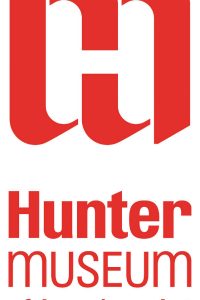PRH and S&S Merger Trial
 The lawsuit filed by the US Department of Justice to stop the proposed merger of Penguin Random House and Simon & Schuster went to trial on August 1, 2022, with Judge Florence Pan presiding. The trial included expert testimony from a wide variety of authors, agents, and publishing professionals. Closing arguments took place on August 19. A ruling is expected in November. The fundamental question is whether the merger will diminish competition to a significant degree and lead to lower advances and royalties for authors. Some highlights from the trial follow.
The lawsuit filed by the US Department of Justice to stop the proposed merger of Penguin Random House and Simon & Schuster went to trial on August 1, 2022, with Judge Florence Pan presiding. The trial included expert testimony from a wide variety of authors, agents, and publishing professionals. Closing arguments took place on August 19. A ruling is expected in November. The fundamental question is whether the merger will diminish competition to a significant degree and lead to lower advances and royalties for authors. Some highlights from the trial follow.
After opening arguments, the first witness for the government was Hachette CEO Michael Pietsch, giving an overview of the book business and discussing how the merger would have a deleterious effect on competition. He said that while he doesn’t oppose mergers in general, this particular deal is troubling because of the size of the parties involved: “My concern… is about the creation of one super-dominant publisher that is so far out of scale with all other publishers.”
Stephen King appeared as a voluntary witness for the government, opening with, “My name is Stephen King. I’m a freelance writer.” When asked why he’d offered to testify against his longtime publisher (Scribner is an imprint of S&S), King said,
I came because I think consolidation is bad for competition. That’s my understanding of the book business, and I’ve been around it for 50 years. When I started in this business, there were literally hundreds of imprints, and some of them were run by people with extremely idiosyncratic tastes, one might say. Those businesses were either subsumed one by one or they ran out of business. I think it becomes tougher and tougher for writers to find enough money to live on…. The more companies there are, the better competition there is… it’s a tough world out there now. That’s why I came.
The defense didn’t cross-examine King, with lawyer Dan Petrocelli saying, “I’d love to sit down and have a coffee with you someday, but I have no questions for you today.”
Next up came Simon & Schuster CEO Jonathan Karp, who spoke in defense of the merger, saying that authors “benefit from competition among all publishers” and insisting there was nothing special about the competition between PRH and his company. The government brought up an email Karp wrote to an author in 2020 saying, “I’m pretty sure the Department of Justice wouldn’t allow Penguin Random House to buy us, but that’s assuming we still have a Department of Justice.” Judge Pan took issue with Karp’s assertion that titles with large advances don’t necessarily get more marketing: “If you pay a lot for a book, like one of these million dollars books that you’ve been chasing for ten years, you’re not going to market that harder than another book? You’re not going to get it reviewed, you’re not going to create a buzz about that book?” Karp admitted that, “We have to market those books quite arduously, definitely.” Karp argued that S&S had often lost major books to smaller publishers who offered packages that were enticing in some other way, and Judge Pan sought clarification about the nature of publicity and marketing. At one point Karp commented that when he started, “$100,000 was a lot of money,” but now it’s a “fairly small advance.”
Ayesha Pande, a literary agent, testified that the merger would mean fewer choices for her clients, though the attorney for PRH, Daniel Petrocelli, countered that very few of Pande’s authors have been in situations where S&S and PRH were the final bidders for their books.
Penguin Random House CEO Markus Dohle appeared on the stand and reiterated his pledge to allow bidding between S&S and PRH imprints after the merger, and said that he was considering a change to the current policy that prevents PRH imprints from bidding against one another in an auction after other publishers have dropped out. He insisted that small publishers can be competitive with large ones.
Macmillan CEO Don Weisberg testified, saying that publishing is “a business of gambling. The more people you have who feel great about a book… the better chance you have to succeed.”
The government’s economist, Nicholas Hill, testified that a combined PRH and S&S would lead to a decline in advances industry-wide, since with fewer publishers involved, the remaining big houses could make smaller bids and still win auctions. He acknowledged that the economics of publishing are hard to model.
Brian Murray, CEO of HarperCollins, talked about his own company’s bid for S&S, and how important control of distribution channels is for attaining market share.
Literary agent Christy Fletcher, who gave a deposition on tape, said she wasn’t worried about the merger, as long as S&S imprints can still bid against PRH imprints. She said, “I think the ability for S&S to benefit from the way Penguin Random House has structured their marketing and promotional departments would be beneficial to authors who are published by Simon & Schuster.”
The first witness for the defense was Jennifer Rudolph Walsh, a former literary agent, who explained what part agents play in the industry, and pointed out that authors often accept deals even if they aren’t the highest bid, because there are other factors. Judge Pan asked how that was “consistent with your fiduciary duty to your author,” and Walsh explained that “The best offer is not necessarily the highest offer.”
While the trial up to this point focused on large advances, Jennifer Bergstrom, publisher of Gallery Book Group, gave a more nuanced view, explaining that 65% percent of Gallery’s books are acquired for under $50,000, 30% for between $50,000 and $1 million, and only five percent over a million.
Sally Kim, publisher of Putnam, testified that her “fiercest competitors, actually,” were other PRH imprints. Literary agents Elyse Cheney, Andrew Wylie, and Gail Ross all testified, explaining auctions, the power of agents in the industry, and how the merger would impact their clients.
Madeline McIntosh, CEO of Penguin Random House US, testified at length, giving some of the most detailed information so far on the actual mechanics of how advances, royalties, and earning out actually work. She was the first to explicitly acknowledge that books don’t need to earn out to be profitable for the publisher: “We can feel that we’re in comfortable, profitable territory at around 70 percent of earnout for most books.”
Economist Edward Snyder argued that auctions would remain competitive after the merger, since there were relatively few cases where PRH and S&S were the winner and runner-up, and in other cases, “you don’t have head-to-head competition.” Judge Pan pushed back: “If you are in an auction, knowing there are more competitors or knowing there’s a lot of interest in the book could affect how much you offer. And that doesn’t depend on if you’re number one or number two.” Snyder said that a combined PRH and S&S wouldn’t cut advances, and Pan countered that, too: “You’re not going in thinking: I’m going to start lowering my advances. But everybody wants to acquire the book at the lowest price they can pay in order to win. And now they’re just going to win at an earlier point in time because there’s less competition. Isn’t that the way advances get lowered, not as a result of a conscious decision to lower advances? I’m saying that there will be no decisions to cut advances, but you’ll get to pay lower advances and still win because there’s less competition.”
Manuel Sansigre, PRH’s senior vice-president of global mergers and acquisitions, testified regarding an extensive in-house “efficiencies model” the company created to determine what the combined company’s operations would look like. The model predicted significant cost savings and increased sales, and the study was crucial to PRH’s argument that the merger will improve margins and lead to more royalties for authors, and make more money available for advances. Unfortunately for PRH, Pan ruled all that data inadmissible: “The efficiencies projected by Penguin Random House are not substantiated and verified…. Independent verification is critical…. While Penguin Random House’s internal process was rigorous, that internal process cannot substitute for independent verification.”
Sansigre also discussed how the merger would work in practice, and what redundancies and cuts might follow. He concluded by saying, “We leave creative untouched. That basically means not to cut any editors, and of course not to cut any services to authors. And we actually want to do the opposite, we want to give them the maximum quality services.”
The final days of the trial were devoted to more economic testimony from Snyder, arguing on behalf of the publishers, and rebuttal testimony from Hill arguing for the government. Closing arguments were held on Friday, August 19, 2022, as scheduled.
This report and more like it in the September 2022 issue of Locus.
 While you are here, please take a moment to support Locus with a one-time or recurring donation. We rely on reader donations to keep the magazine and site going, and would like to keep the site paywall free, but WE NEED YOUR FINANCIAL SUPPORT to continue quality coverage of the science fiction and fantasy field.
While you are here, please take a moment to support Locus with a one-time or recurring donation. We rely on reader donations to keep the magazine and site going, and would like to keep the site paywall free, but WE NEED YOUR FINANCIAL SUPPORT to continue quality coverage of the science fiction and fantasy field.
©Locus Magazine. Copyrighted material may not be republished without permission of LSFF.








